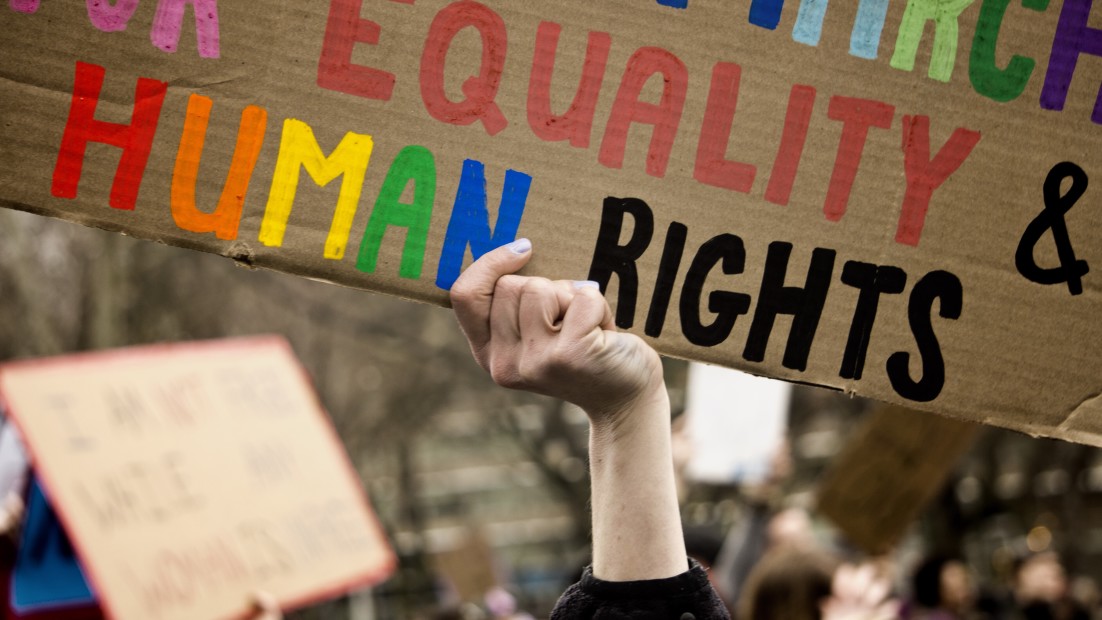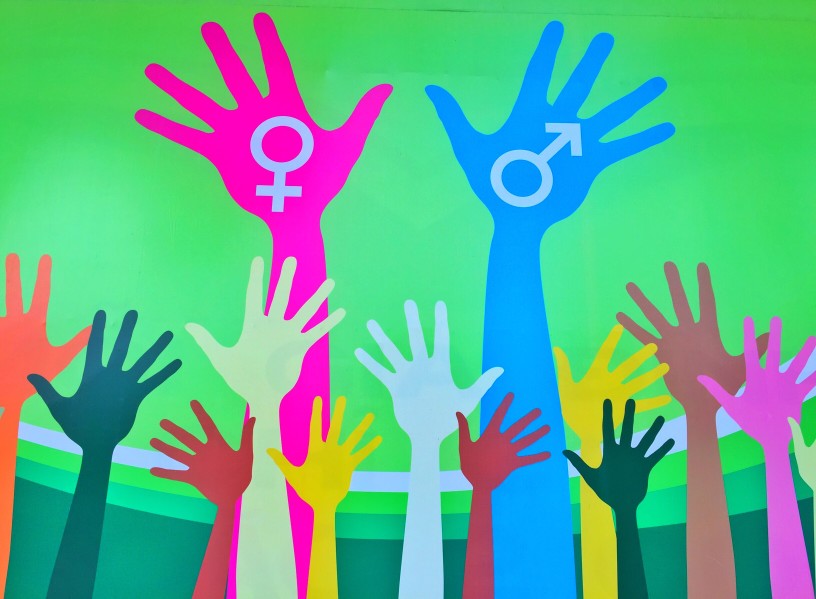LGBTQIA Voices On Going Beyond Recruitment At The Workspace

Written By: Poorvi Gupta, 🖊 edited by Varna
September 6 2018, was a historic day for many, when in a landmark decision Supreme Court decriminalized homosexuality. What has the fall out been as far as industry is concerned? One could say that it pushed companies to recruit LGBTQIA people and also use the judgement to advertise and position companies as progressive. While marketing to some extent is inherent to all industries, there is a felt need, from members of the LGBTQIA community for companies to go beyond just recruitment. Despite the NALSA judgement in 2014, that aimed at ensuring fundamental rights for the trans community, the treatment of people from the LGBTQIA community at the workplace remains poor. This is especially true of entry level trans employees, members of the community tell UnGender.
Not Just Recruitment
Srini Ramaswamy co-founded Pride Circle in 2017 with the aim to ensure work opportunities for transgender persons. The Pride Circle launched the RISE (Reimagining Inclusion for Social Equity) programme in 2019 which included a LGBTI conference, job Fair and marketplace (Bengaluru and Delhi) in 2019. Over 45 companies from within the country set up recruitment opportunities for transgender persons. “Participating companies set up their booths with pride colours and invested around 5-10 lakh in building their booths. The first edition had about 350 recruits and the latest had around 1250 participants,” the founder shares about the job fair.
Opportunities are wonderful, but unfortunately too little, because by themselves they don’t address systematic discrimination within the workplace though.
Sonal Giani who works at Humsafar Trust now, and identifies as bisexual, shares her experience of her first job.
“I was barely 19-20 years old working in Mumbai between 2008-09 and I hadn’t come out at my workplace. After working for a couple of months I told my manager that I am a bi-sexual individual. They did not care to keep it confidential and after that, I went through several incidents of harassment based on my sexuality. One time, there was sexual graffiti in the workspace with my name on it. Then, whenever I went to the changing room, all the women in the room would leave immediately. Another time, I was using the employee drop service and the driver showed me a porn clip. Whenever I tried to report all of this, my manager would say things like ‘why do such things happen only with you?’, ‘you are up to something’ etc. It was clearly harassment but I was unable to address it given the culture of the organisation. The company I was working with had openly declared itself to be LGBTQIA-friendly, but I feel that the the work culture did not allow it to become what it claimed”
She also feels that the onus of creating an inclusive work culture is solely on the LGBTQIA person.
“Employers and colleagues believe that we are down-trodden and they are uplifting us by giving us work. But it shouldn’t work like that. They should in fact make the space friendly before recruiting the LGBTQ community but the opposite happens. So a lot of times the most LGBTQ-friendly workplaces can be the most unsafe ones simply because they don’t invest in sensitizing their employees,” she adds.


Giani left her first employer, she recounts, having been passed over for promotion owing she believes, to her coming-out to her manager, “there are indirect ways of affecting as I can never directly say that I wasn’t promoted because of my sexuality.” Miss Transqueen 2018, Nitasha Biswas, who works as a model and a social media influencer, remembers facing enormous discrimination at the start of her career because she was always open about the fact that she felt like a woman trapped in a man’s body before her sex reassignment surgery.
“When I started cross-dressing and my colleagues got to know about it, they taunted me, called me nasty names and it was basically a whole lot of mental harassment,” she stated about working for an e-commerce website in her early 20s when she had just left Kolkata to come to live in New Delhi, all by herself.
While her past may be dotted with harassment, Biswas believes that she has made a place for herself over time. “People now take me more seriously because I have achieved titles and awards. I also feel that it’s not always about society and even as a transwoman or a woman, I also have to behave in a certain manner for people to respect me. I have always believed that I am a transwoman and that I am just like other women” she notes adding that her message to transgirls is to be normal and society will accept you.
On the other hand, Mr Gay India 2019, Suresh Ramdas never felt discriminated at the workplace, he does however ackowledge that there are several others who go through mental harassment and workplace discrimination. This is why he began campaigning for workplace inclusion.
“Around five-six years ago when I came out, I started interacting with people from the community and realized that the workplace is where inclusion and affirmative action is the need of the hour. Now I work as a facilitator and training is part of my job wherein I conduct sessions to educate people on Diversity and Inclusion (D&I) from the LGBTQIA community standpoint,” he adds.
Watch his video about coming out and being harassed from a very young age here:
The fact that the issue is complex is clear from the differences between the lived-experiences of Ramdas (a gay man), Biswas (a transwoman) and Giani who identifies as a bi-sexual individual. Given that gender identity is fluid, it is also always worthwhile to reconsider how workplaces can be accomodating of not just the rainbow as a whole, but of individual colours, within the rainbow too.
As Holly Lawford Smith, Senior Lecturer in Political Philosophy at the University of Melbourne puts it (excerpt abbreviated);
“Transmen, being steeped in androcentric culture like all the rest of us, have ample knowledge of what being a man feels like (or at least, as good as it gets without literally crawling inside someone else’s brain). When a trans man says ‘I feel like a man’, she has the relevant bits of information: she knows what being a man feels like, and she knows how she feels, to make the comparison. For men there is little at stake in accepting the claim ‘trans men are men!’. Men do not have sex-based political interests that they have a strong interest in protecting. Men are over– not under-represented in positions of power in our society, and they are not discriminated against on the basis of being men.
Because men are the dominant social group when it comes to sex, there is no generally-accepted right that men have to ‘men-only spaces’. When men try to keep women out of things, we think that’s almost always sexism (with some exceptions for clubs and associations). Trans men often ‘pass’, so are not even known to be trans (not that this would be likely to cause much anxiety among men, among whom there tend not to be significant numbers of people who have experienced histories of abuse at the hands of women). So for men, not much is at stake when it comes to the question of accepting trans men as men.
The opposite is not true. Women historically have been oppressed as a caste, and this continues to have ramifications today in the forms of discrimination; under-representation; explicit, implicit, and unconscious biases; and constraining social norms and expectations. Women have sex-based political interests, e.g. in fighting against pregnancy and breastfeeding discrimination, and making sure that their states protect their human rights. As measures to improve women’s situation, some anti-discrimination, affirmative action, and other positive measures have been put in place, including e.g. sex-segregated bathrooms in workplaces, hiring quotas, and women’s networking and mentoring events.”
Therefore transwomen (women who transitition to men) too, face more discrimination than their transmen (men who transition to women), counterparts.


For most people from the queer community, it takes years of mental trauma and harassment at workplace to learn how to fight it and insulate themselves. However as Giani says, why should the onus lie on the queer person employed by the company to educate others? Shouldn’t the company hire D&I experts, to sensitise employees, when it comes to working along with people who don’t conform to their birth-assigned sexuality and gender? A gender non-conforming person working at a well-known MNC (wants to remain anonymous) tells us how every time he has to go to the office, he has to go through the peering glances of employees.
“I am a makeup artist and I work as a consultant with this company so I have to go to the office quite often and it’s always a very uncomfortable scenario. I thought it would get better when people get to know me and after some time passes but things haven’t changed really. I always feel like quitting because of this but I cannot, now, more so than ever because there is such a scarcity of jobs. It’s so hard to go through all this and I am always just forcing myself to go to work.”
This particular person underwent a series of anxiety attacks for days but they couldn’t tell their bosses about their mental state because of the company’s insensitive behaviour. Over the years, while it gets easier for some to attain financial independence and dignity at work simultaneously, others in the community continue to struggle with it. These experiences are not isolated experiences. They are, in fact, the majority of experiences.
So while it is great that companies are deriving PR opportunities from the LGBTQIA community, they also need to look within the company – what happens to these employees once they are hired? What happens to their safety and happiness?
A Workplace Worthy Of LGBTQIA Folks
Giani who has been working with LGBTQIA individuals, helping them find their ground, especially in the workplace suggests:
- Companies should create a written policy against discrimination specifically stating the LGBTQIA community and go beyond that by announcing health benefits and partnership benefits for queer people.
- Workplaces must initiate employee resource groups even if they have one or two queer employees. They need to make it very clear that there is a resource group for allies.
- Companies must have regular sensitization programs and reiterate their position on being an LGBTQIA-friendly space. Repeatedly emphasizing that the culture of the workplace is open and inclusive.
- Companies need to focus on putting more people in leadership positions who identify explicitly as LGBTQIA
- Lastly, when companies organise recruitment drives, they must reserve positions for queer people.
Ramdas agrees with Giani and adds, “Having an open and honest conversation about why workplaces need to be inclusive and that everybody should be respected for who they are is a must. For any business to grow, it requires a diverse of brains to work for its progress and this will only happen if the culture at the workplace is welcoming for all. Corporate leaders must drive the conversations around making the work culture progressive and all-encompassing, only then will real change happen.
Ramaswamy also states that while D&I at the workplace is a constant process, the next thing on his mind is to organize skill-building workshops. “We want to get the companies to facilitate training sessions on skills”, like with women, queer folk too, as a class, have had inequal oportunities in training, skill-building and therefore wage.
Companies need to stop being the torch-bearers of binaries and accept the choices people make for themselves.
Also read: How To Transform Your Workplace To Be Transgender Inclusive
About the author: Poorvi Gupta is a freelance journalist working in the gender space. She is mostly optimistic about the progress women are making in male-dominated spaces and feels passionately about women speaking up at the workplace or in public spaces battling intersectional odds.
Ungender Insights is the product of our learning from advisory work at Ungender. Our team specializes in advising workplaces on workplace diversity and inclusion. Write to us at contact@ungender.in to understand how we can partner with your organization to build a more inclusive workplace.
Read our insights about diversity, legal updates and industry knowledge on workplace inclusion at Ungender Insights. Visit our Blog.
Sign up to stay up-to-date with our free e-mail newsletter.
The above insights are a product of our learning from our advisory work at Ungender. Our Team specialises in advising workplaces on gender centric laws.
or email us at contact@ungender.in




